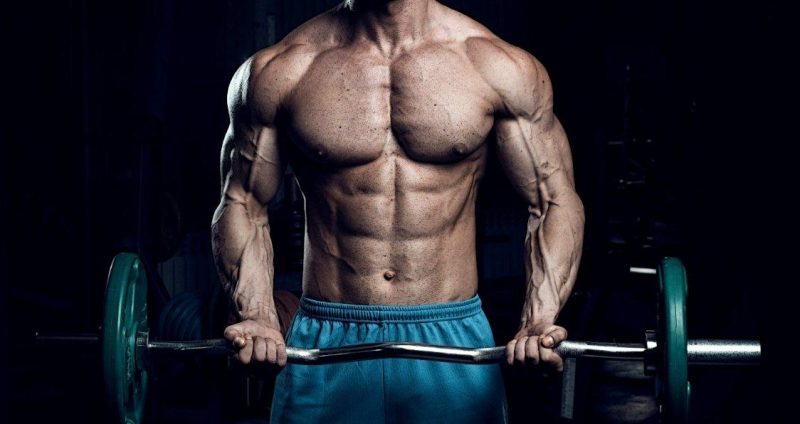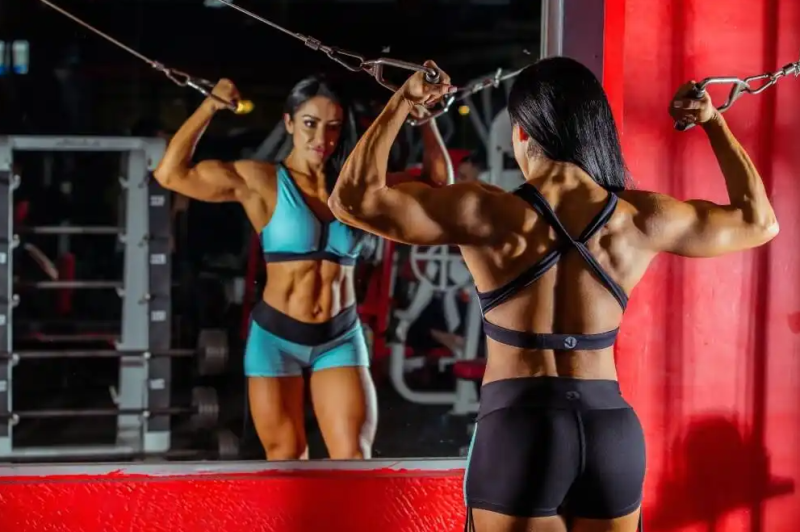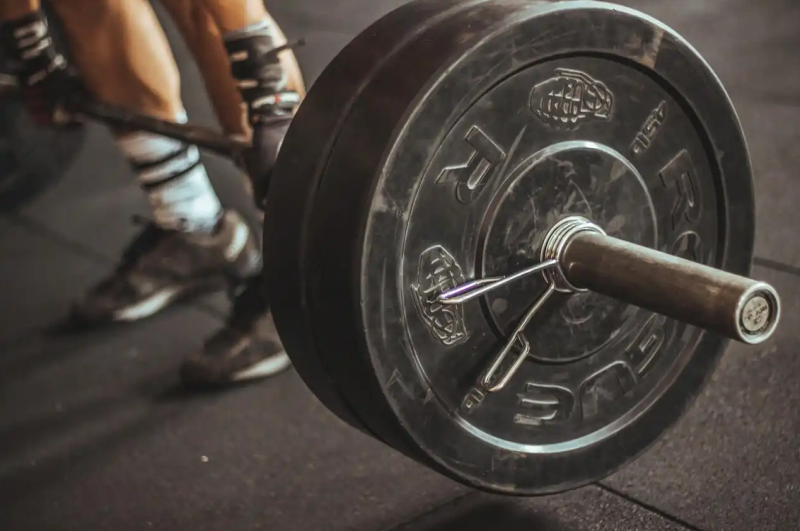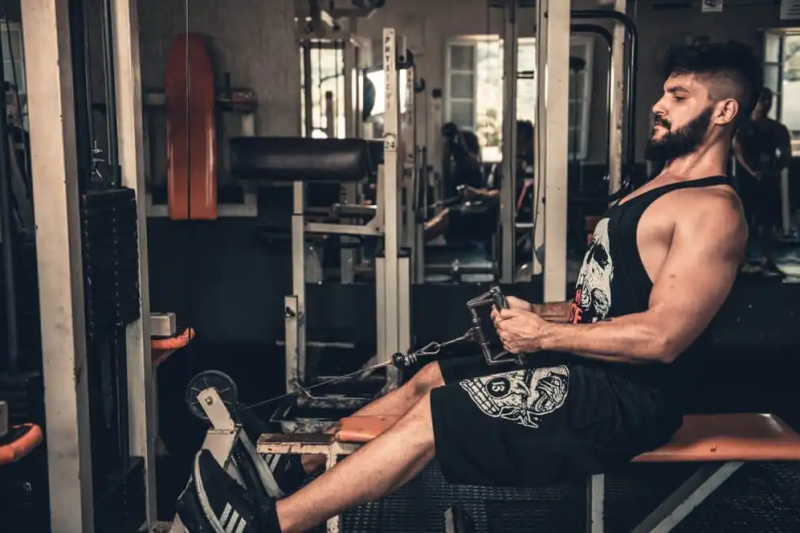 Also known in Spanish as fisicoculturismo, bodybuilding is a physical activity based on lifting weights and performing various anaerobic exercises.
Anaerobic exercises are all those high-intensity activities in which a great effort is required for a short period. Thus, the goal is to burn fat and build muscle.
Also known in Spanish as fisicoculturismo, bodybuilding is a physical activity based on lifting weights and performing various anaerobic exercises.
Anaerobic exercises are all those high-intensity activities in which a great effort is required for a short period. Thus, the goal is to burn fat and build muscle.
Contents
What is bodybuilding?
 This activity is carried out mainly in the gym, where they have all the equipment and weights to perform the exercises. Bodybuilding aims to have a well-defined, strong, and defined body and maintain symmetry between the torso and the legs.
Another name to call bodybuilding in Spanish is musculación, where the muscles are hypertrophied, and it is not necessary to do various poses to show the changes. Although they may seem similar, this discipline differs greatly from weightlifting (weightlifting), powerlifting, or CrossFit.
In some countries, it is recognized as a competitive sport with associations or councils that bring together athletes, teachers, and gyms.
The origins of this discipline go back to the time of the Greeks. It should be remembered that men were preparing to compete in the Olympic Games, and the winner, it was believed, was the one most similar to the gods of Olympus.
The word bodybuilding, as we know it today, comes from French since it is in this country where the discipline with an aesthetic purpose arises. Eugen Sandow was a Prussian athlete and the first to perform in exhibitions where he displayed his musculature. For this reason, he is known as the “father of modern bodybuilding.”
This man also sold mechanical exercise equipment or devices, such as pulleys and weights. Thus, he was in charge of organizing the first contest in 1901.
This activity is carried out mainly in the gym, where they have all the equipment and weights to perform the exercises. Bodybuilding aims to have a well-defined, strong, and defined body and maintain symmetry between the torso and the legs.
Another name to call bodybuilding in Spanish is musculación, where the muscles are hypertrophied, and it is not necessary to do various poses to show the changes. Although they may seem similar, this discipline differs greatly from weightlifting (weightlifting), powerlifting, or CrossFit.
In some countries, it is recognized as a competitive sport with associations or councils that bring together athletes, teachers, and gyms.
The origins of this discipline go back to the time of the Greeks. It should be remembered that men were preparing to compete in the Olympic Games, and the winner, it was believed, was the one most similar to the gods of Olympus.
The word bodybuilding, as we know it today, comes from French since it is in this country where the discipline with an aesthetic purpose arises. Eugen Sandow was a Prussian athlete and the first to perform in exhibitions where he displayed his musculature. For this reason, he is known as the “father of modern bodybuilding.”
This man also sold mechanical exercise equipment or devices, such as pulleys and weights. Thus, he was in charge of organizing the first contest in 1901.
Three Premises to Be a Bodybuilder
If you think of being a bodybuilder at some point, you should know that those practicing bodybuilding must follow three main rules.Weight lifting against resistance

- This way, transformations occur in the muscle fibers (microtraumas, according to the medical term).
- Routines divided into series and repetitions are used, as well as temporary planning, interspersing cycles of more or less weight.
- In addition, the areas are worked separately: arms, back, torso, or legs, according to each routine.
High-quality diet
It is composed, for the most part, of natural proteins and, in some instances, artificial. This aids in superior muscle growth and repair, as this article in the journal Nutrients points out. In addition to those daily supplements, bodybuilders eat more protein than any “normal” person. Thanks to this, they can repair the damage produced in the muscles during the training routine. Carbohydrates are also part of a bodybuilder’s diet. This is because they provide the energy that is needed to be able to perform the exercises.adequate rest
Sleep helps rebuild and repair fibers damaged during exercise. Without enough sleep, an athlete cannot see results in his body. Therefore, sleeping 8 hours daily and training about five times a week is necessary. This way, you can prepare better whenever you go to the gym.Bodybuilding: Is it an “artificial” sport?
 Various investigations have been carried out, such as this study published in Medicine and Science in Sports and exercise, to find out the health problems that bodybuilding can cause but, above all, the indiscriminate use of substances and drugs to improve the appearance of muscles. The latter is mainly associated with those who compete in various competitions.
That is why doctors and other athletes entirely question this activity. Some even do not consider it a sport, even though it is practiced in the gym.
To get muscles like the ones you see on TV or in the movies, not only is weightlifting work done, but it must be combined with artificial elements. For this reason, there are anti-doping controls in major competitions.
The human body is not designed to support 50 more kilos of muscle. Therefore, bodybuilding is artificial, as can be anything added, such as breast implants.
In nature, there is no way to get such a substantial body with exercise; That is where the controversy begins. Many athletes consume hormones to enlarge their muscles. This can cause considerable hypertrophy since, when you stop training or eating them, they cause the loss of what you have achieved.
Various investigations have been carried out, such as this study published in Medicine and Science in Sports and exercise, to find out the health problems that bodybuilding can cause but, above all, the indiscriminate use of substances and drugs to improve the appearance of muscles. The latter is mainly associated with those who compete in various competitions.
That is why doctors and other athletes entirely question this activity. Some even do not consider it a sport, even though it is practiced in the gym.
To get muscles like the ones you see on TV or in the movies, not only is weightlifting work done, but it must be combined with artificial elements. For this reason, there are anti-doping controls in major competitions.
The human body is not designed to support 50 more kilos of muscle. Therefore, bodybuilding is artificial, as can be anything added, such as breast implants.
In nature, there is no way to get such a substantial body with exercise; That is where the controversy begins. Many athletes consume hormones to enlarge their muscles. This can cause considerable hypertrophy since, when you stop training or eating them, they cause the loss of what you have achieved.
Side Effects of Bodybuilding
It is valid to clarify that the problem does not lie in lifting weights, having marked muscles, or lowering fat from specific body parts through exercise. The dangers can begin when certain substances are consumed to speed up the process or when we lift more weight than we can. The disadvantages of artificial proteins are- Overload on the kidneys leads to all kinds of kidney diseases such as stones, failure, etc. However, as this study published in Nutrition & Metabolism shows, more research is required.
- Damage to blood vessels (also caused by kidney imbalances), hypertension, and heart attacks (possibility of death), as evidenced by this research published in the Heart.
- Decalcification of bones, osteoporosis, fragile and brittle bones.
- Dehydration of cells and organs.
- Sexual impotence and infertility problems, as shown in this work published in Basic and Clinical Andrology.
- Possibility of injury due to not performing the exercises correctly.
- Muscle fatigue from increasing loads.
- A herniated disc, spinal cord problems.
- Dislocation of bones, tendonitis, inflammation.